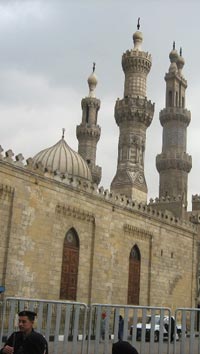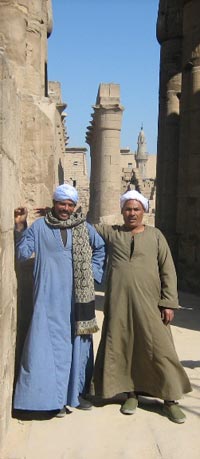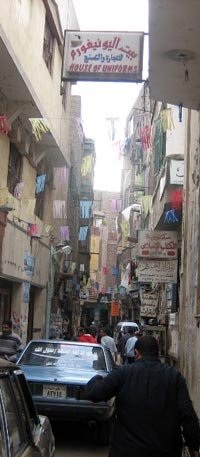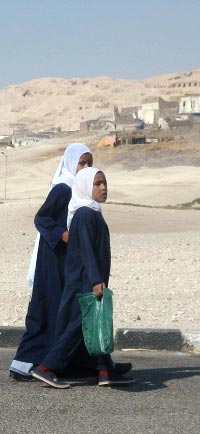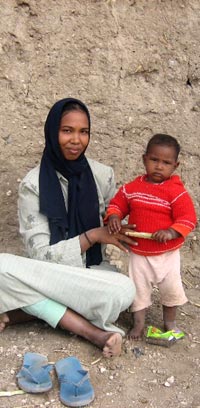Developmental Idealism, Gender Relations, and the Work-Family Nexis in Egypt
Kathryn Yount and Hoda Rashad, P.I.s
Developmental Idealism, Gender Relations, and the Work-Family Nexis in Egypt research project is supported by funds from Emory University’s Center on Myth and Ritual in American Life (“MARIAL”), which is one of five Sloan Centers on Working Families, supported by the Alfred P. Sloan Foundation’s Program on Dual-Career Working Middle Class Families. The Emory Center focuses its research on the functions and significance of ritual and myth in dual wage-earner middle-class families in the American South.
MARIAL Newsletter Excerpts
The Spring 2005 Newsletter of the Emory Center for Myth and Rituyal in American Life (MARIAL) featured the following two articles related to Developmental Idealism:
The Fellows’ Forum Globalizing The Modern Family Ideal, by Kathryn M. Yount
Sociologist Studies Family Life Ideals That Have Surfaced In Egypt
Rationale and Goals of Project
The ‘developmental paradigm’ and assertions among scholars that developmental trajectories of societies and families could be inferred from cross-sectional data dominated the social sciences during the 1700s to the 1900s. Scholars since have challenged many of the assertions about societal and familial change that earlier scholars made, but others argue that this paradigm and its applications produced the influential ‘developmental ideals ‘ that ‘modern society’ is good and attainable, the ‘modern family’ is good and attainable, the ‘modern family’ is a cause and effect of ‘modern society ‘, and that ‘individuals’ should be free and equal and social relationships based on consent. Imbedded in the propositions of ‘modern’ society and ‘modern’ family are the ideals of gender equality and women’s empowerment in public and private life. These ideals have been widely disseminated through various mechanisms, including occupational networks; educational systems; expanded networks of communication, transportation, and the media; governmental and non-governmental ‘community-development programs’; and organized social movements. Scholars posit that exposure to and acceptance of these propositions have influenced the ways that couples organize and negotiate their commitments to work and family life.
In this study, we will adapt the framework of developmental idealism and expand qualitative and quantitative instruments that have been piloted in Nepal and Argentina to explore the determinants of men’s and women’s adherence to internationally recognized ideals pertaining to gender equality and women’s empowerment in a community-based sample of families in one urban and one rural district in Ismailia, Egypt. We will explore the local salience of these ideals and perceptions about their origins. We will assess the degree to which adult women and men (15-54 years) can rank selected societies according to internationally recognized benchmarks of gender equality and women’s empowerment, which include (among others) indicators for gender equality in economic participation and decision-making, political participation and decision-making, power over economic resources, and achievement of a decent standard of living. We will assess whether respondents are aware of and agree with associations between internationally recognized constructs pertaining to ‘modern families/gender relations ‘and ‘modern society.’ Finally, we will explore the determinants of adherence to these ideals, as well as associations of adherence to these ideals and the ways in which women and men negotiate their work and family life, including recent occupational decisions, occupational attainments, participation in household budgeting and decision making, control over household resources, allocation of time to domestic chores, and care of children and other dependents.


